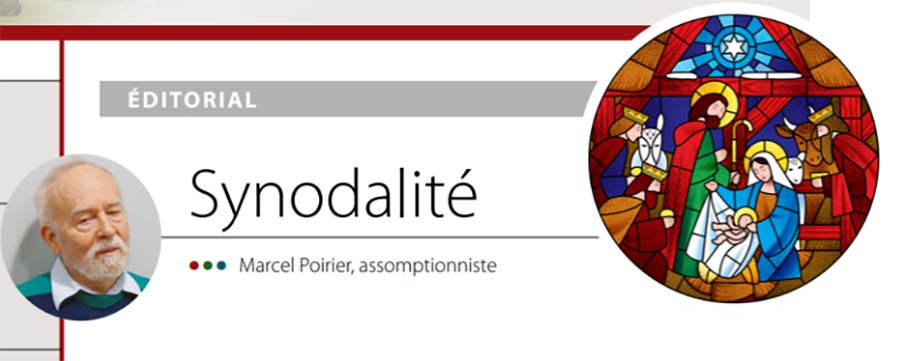
The following is a reflection from Marcel Poirier, Assumptionist and local superior of our community in Quebec City.
New words are regularly proposed to us: Covid-19, synodality, etc. If fashions play a certain role, this is not the case for “Covid-19” and for “synodality”. The first term refers to a virus, a disease; the second is intended to combat such a disease.
Which disease are we talking about? The distrust that has infiltrated our societies; we distrust the rulers, the media, the economic elites, the police, etc.
The result is a withdrawal into oneself, a closure within one’s group, with those who share our ways of seeing and thinking. By mutating, the virus becomes intolerant and rejects those who see reality differently from us.
The symptoms of the virus can be seen in our Quebec society. Opinions harden and tend to become polarized. Even in the Church where one risks being classified as “progressive” or “conservative”. The border between the two categories seems unbridgeable. Like our borders at the time of Covid-19.
The only remedy or vaccine against distrust and intolerance is synodality. As the Minister of Health has told us repeatedly, the more people are vaccinated, the greater the security of the whole.
Aware that this phenomenon is infecting ecclesial relations, Pope Francis has decided to convene a synod on synodality. It is as if a congress on dialogue were being organized to highlight the fact that we no longer know how to dialogue. The synod is about synodality for the same reasons.
The theme is important because it describes the very nature of the Church. It should always be synodal, that is, it should bring together men and women who, despite or with their particularities, walk together in the same direction. “Walking together” is the meaning of synodality.
It is essential that the bishops of all countries walk together with Pope Francis. It is equally important that the faithful at the grassroots level develop the attitude of listening necessary to move forward together. A respectful listening.
There are people with whom it is easy to walk. With others, walking is difficult, even impossible. So, a “vaccine” to combat this disease is necessary. How can we do this? By learning or relearning to listen attentively and respectfully to our interlocutors.
The Holy Spirit will have to intervene to soften our ways of dialoguing with people who do not share our way of thinking.
To know if we are infected, let us ask ourselves: with whom do we walk? And who do we refuse to walk with? For our personal credibility and that of the Church, let us develop synodal attitudes.